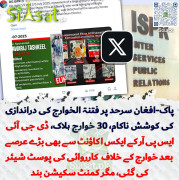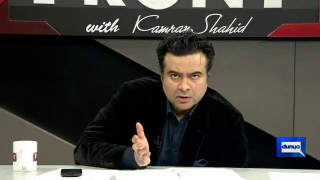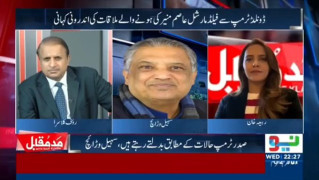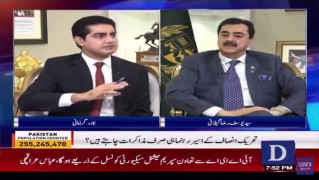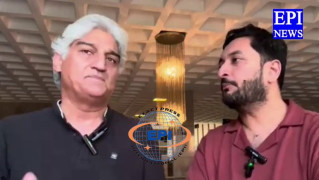sarbakaf
Siasat.pk - Blogger
Army chief says talks with Taliban should start soon
Page last updated at 12:32 GMT, Sunday, 27 June 2010 13:32 UK
 Gen Richards is a former commander of Nato forces in Afghanistan The head of the British army believes politicians and military chiefs should talk to members of the Taliban sooner rather than later.
Gen Richards is a former commander of Nato forces in Afghanistan The head of the British army believes politicians and military chiefs should talk to members of the Taliban sooner rather than later.
Gen Sir David Richards said that in every counter-insurgency campaign, there was "always a point which you start to negotiate with each other".
Nineteen British personnel have died this month, with 10 deaths in the past nine days.
David Cameron has said he wants UK troops out within five years.
'Not giving up' Negotiation with moderate elements of the Taliban is likely to form an important part of future coalition strategy.
Continue reading the main story
General Stanley McChrystal, fired last week as commander of multi-national forces, said there needed to be more engagement with those whose main motivation was financial, rather than ideological.
And at the London Conference on Afghanistan in January, plans were announced for an international fund to help integrate the Taliban back into civilian life.
Speaking on BBC Radio 4's The World This Weekend, Gen Richards said it was his personal belief that talking to the Taliban should happen "pretty soon".
"If you look at any counter-insurgency campaign throughout history there's always a point at which you start to negotiate with each other, probably through proxies in the first instance, and I don't know when that will happen," he said.
"From my own, and this is a purely private view, I think there's no reason why we shouldn't be looking at that sort of thing pretty soon.
'Maximum pressure' "But at the same time you've got to continue the work we're doing on the military, governance and development perspectives to make sure they don't think we're giving up. It's a concurrent process and they're both equally important"
But Sir Richard Dannatt, a former head of the Army, told the BBC's Andrew Marr that the military must put "maximum pressure" on the Taliban to clear them out of Afghanistan.
Referring to the PM's comments about troop withdrawal, Sir Richard said it was important the Taliban were not able to "sit out" the time until international forces left their country.
He said counter-insurgency operations "always take time" and it was important the military effort was properly resourced and given political support.
'No timetable' Speaking in Canada, where he is taking part in the G8 and G20 summits, Mr Cameron said he wanted to see troops home by the time of the next general election, due in 2015.
He told Sky News: "We can't be there for another five years, having been there for nine years already.
"But one thing we should be clear about - Britain should have a long-term relationship with Afghanistan, including helping to train their troops and their civil society, long after the vast bulk of troops have gone home."
His aides said his comments did not suggest any new timetable for bringing troops home.
Some 308 UK forces personnel have died since the Afghan mission began in 2001.
About 10,000 British soldiers are based in Afghanistan, many fighting a counter-insurgency campaign in the southern Helmand province.
Ministers say it is crucial to Britain's own security to ensure "a stable enough" Afghanistan to prevent it again becoming a haven for those who want to carry out attacks like 9/11.
British troops went to Afghanistan in November 2001 as part of an American-led invasion in the wake of the 9/11 attacks in the US.
The goal was to topple the Taliban who had given safe haven to al-Qaeda, although in the following years the aims of the British mission broadened.
Page last updated at 12:32 GMT, Sunday, 27 June 2010 13:32 UK

Gen Sir David Richards said that in every counter-insurgency campaign, there was "always a point which you start to negotiate with each other".
Nineteen British personnel have died this month, with 10 deaths in the past nine days.
David Cameron has said he wants UK troops out within five years.
'Not giving up' Negotiation with moderate elements of the Taliban is likely to form an important part of future coalition strategy.
Continue reading the main story
I think there's no reason why we shouldn't be looking at that sort of thing [talking to the Taliban] pretty soon
Gen Sir David Richards Making a deal with the Taliban
General Stanley McChrystal, fired last week as commander of multi-national forces, said there needed to be more engagement with those whose main motivation was financial, rather than ideological.
And at the London Conference on Afghanistan in January, plans were announced for an international fund to help integrate the Taliban back into civilian life.
Speaking on BBC Radio 4's The World This Weekend, Gen Richards said it was his personal belief that talking to the Taliban should happen "pretty soon".
"If you look at any counter-insurgency campaign throughout history there's always a point at which you start to negotiate with each other, probably through proxies in the first instance, and I don't know when that will happen," he said.
"From my own, and this is a purely private view, I think there's no reason why we shouldn't be looking at that sort of thing pretty soon.
'Maximum pressure' "But at the same time you've got to continue the work we're doing on the military, governance and development perspectives to make sure they don't think we're giving up. It's a concurrent process and they're both equally important"
But Sir Richard Dannatt, a former head of the Army, told the BBC's Andrew Marr that the military must put "maximum pressure" on the Taliban to clear them out of Afghanistan.
Referring to the PM's comments about troop withdrawal, Sir Richard said it was important the Taliban were not able to "sit out" the time until international forces left their country.
He said counter-insurgency operations "always take time" and it was important the military effort was properly resourced and given political support.
'No timetable' Speaking in Canada, where he is taking part in the G8 and G20 summits, Mr Cameron said he wanted to see troops home by the time of the next general election, due in 2015.
He told Sky News: "We can't be there for another five years, having been there for nine years already.
"But one thing we should be clear about - Britain should have a long-term relationship with Afghanistan, including helping to train their troops and their civil society, long after the vast bulk of troops have gone home."
His aides said his comments did not suggest any new timetable for bringing troops home.
Some 308 UK forces personnel have died since the Afghan mission began in 2001.
About 10,000 British soldiers are based in Afghanistan, many fighting a counter-insurgency campaign in the southern Helmand province.
Ministers say it is crucial to Britain's own security to ensure "a stable enough" Afghanistan to prevent it again becoming a haven for those who want to carry out attacks like 9/11.
British troops went to Afghanistan in November 2001 as part of an American-led invasion in the wake of the 9/11 attacks in the US.
The goal was to topple the Taliban who had given safe haven to al-Qaeda, although in the following years the aims of the British mission broadened.

